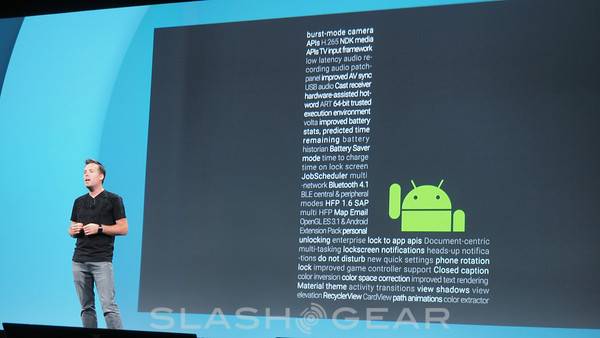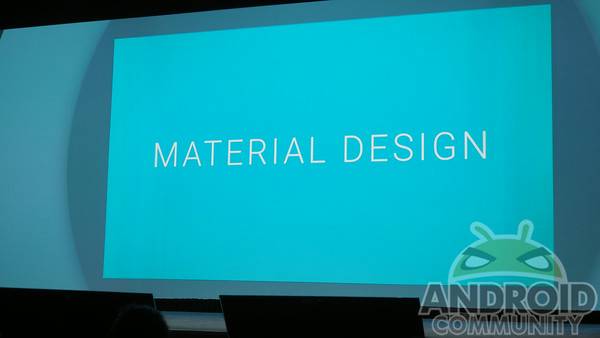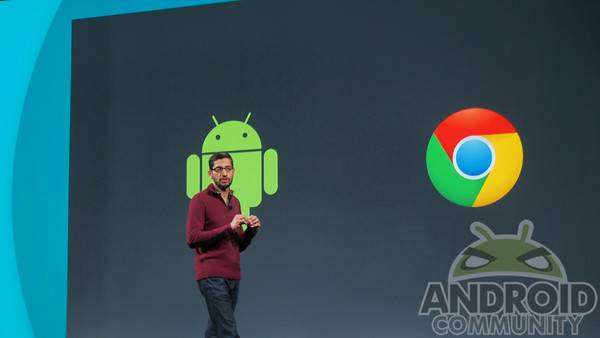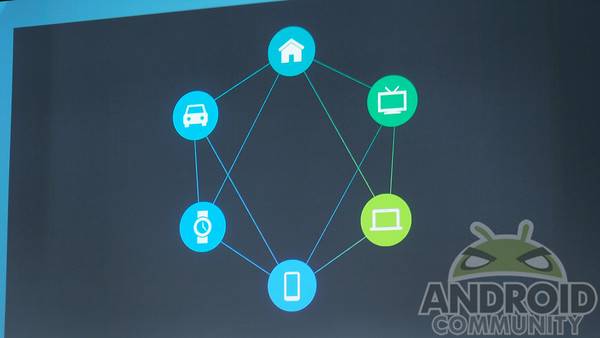
Android “L” is coming later this year, and on-stage at Gogole I/O, we got a preview of what the newest version was bringing us. Though it’s far from finished, the sneak-peak is meant to give Developers an idea of what they will be able to do with the release. The new release is not a massive upgrade, but here are some key points to take away from the sneak preview.
Nameless
Android “L” has no name. It may never have a name, either. It’s entirely possible that Google either hasn’t decided on a moniker, or will simply call it “L”. There is also the handshake KitKat deal to think of, where no money exchanged hands, but a cross-promotional deal was reached. Google may just be honoring whatever terms that agreement had.
It’s getting a facelift
Not a massive one, but the “L” release will tighten up the interface just a touch. A new color palette will lighten things up, and Google is encouraging Developers to make smart choies about what they use for an overall scheme. This all falls into Google’s material design, a youthful and exciting take on what an android device should look like. They’ve also streamlined the guidelines, so apps will have a bit more of a generic feel, but improve much more as a result.

Notifications
Perhaps the most important part of the “L” release is notifications, which are getting a lot better. They’ve been improved to a card-based layout, and will be much more interactive. From the lock screen, you can swipe them away or double-tap to get into the app itself. When you’re in an app, a pop-up will show you what’s going on, and give you choices about how to interact (a call would let you answer or dismiss, for instance).
”L” might mean “Locked”
Or unlocked, as the case were. Android “L” will have a really neat way of unlocking, should you have another device with you. Let’s say you’ve got a Moto 360 on, and a pin code set on your HTC One. Android “L” will recognize that your smartwatch is nearby, and relax that passcode lock. It also works with other handhelds like a tablet.

Chrome
If you use a Chromebook, Android “L” will be nice for you. Not only will your Chromebook get notifications on calls and texts you receive, it will also keep tabs on your battery, so you know when to charge your phone in. If that weren’t enough, there is one more major feature that is being teased and worked on at Google.
We will soon be able to run Android apps on our Chromebooks, natively. The on-stage demo showed Evernote for Android running natively in Chrome OS, acting exactly the same as the mobile version. It’s an early concept, but a really neat one.
Business
The “L” release for Android is getting a lot better about enterprise, too. Like we’ve seen with various third-party OEMs, Android “L” will natively support multiple profiles — one for personal, and another for business. It effectively creates a partition, so your two profiles don’t access information from one another.

ART
ART, the runtime we first saw with release of Android KitKat, is now going to be standard. Google says nothing has to be done from a Developer perspective, either. ART is also touted as being snappier than the previous Dalvik runtime, so the lag we experience from time to time should diminish.
Conclusion
As we pointed out at the beginning, this is simply a new iteration of Android, not a massive overhaul. The time for big, sweeping changes is gone. This version of Android makes things simpler for Developers, but also increases the value we see as consumers. Overall, we like what we’re hearing, and look forward to see what Developers can do with some of the new APIs Google is rolling out with this release.










A little proofreading would have been nice on this one.
“It may never have a name, either” Google isn’t that stupid. It will have a name.
“L” is a fine name.
Android Ryuzaki?
“L” is a fine name.
“We will soon be able to run Android apps on our Chromebooks, natively.”
I think this is a bit of a misnomer isn’t it?
Didn’t they say they were just making it easier for android app developers to PORT their apps to ChromeOS with as little modification as possible?
It’s not exactly “running Android apps on your Chromebook” so much as running a port of an Android app on your Chromebook. The devs would still have to be willing to port their apps and support them separately. So the implication that the full Google play library of apps would be available isn’t necessarily true.
Google leaves its name to apple and apple will name it “New Android!”. Lol
I fail to see how this isn’t a major facelift?
Android Life Saver. Saving the lives of many people switching from iPhone
What you think about
Android Lollipop
Android Lime
Android Lemon
Android Lychee
What would be the appropriately named operating system considering the history. Lumpy, lard, lively, likely, leisure, lyrical, luminous, LOADED, lean, linear, limitless? Or lemon pear paste, lime juice pastels? This is tough but I really think thought plays a role in a name and wonder in its reason.
I wasn’t criticizing Android L here, but merely the reporting of new features… If the article would have stated “Google is making it much easier for developers to port their Android apps to ChromeOS, so expect to see many more apps available for your chromebook in the near future”, then there would have been no reason for my criticism in the first place.
That is a positive development, not a negative one. The fact that you immediately jump the the conclusion that I’m “angry” and “not getting my way” reeks of the type of attitude that a mindless fanboy would maintain.
Don’t be *that guy* on these forums. Your efforts are much appreciated.
Android Lady
Android Lobster
Android Lobster Lady